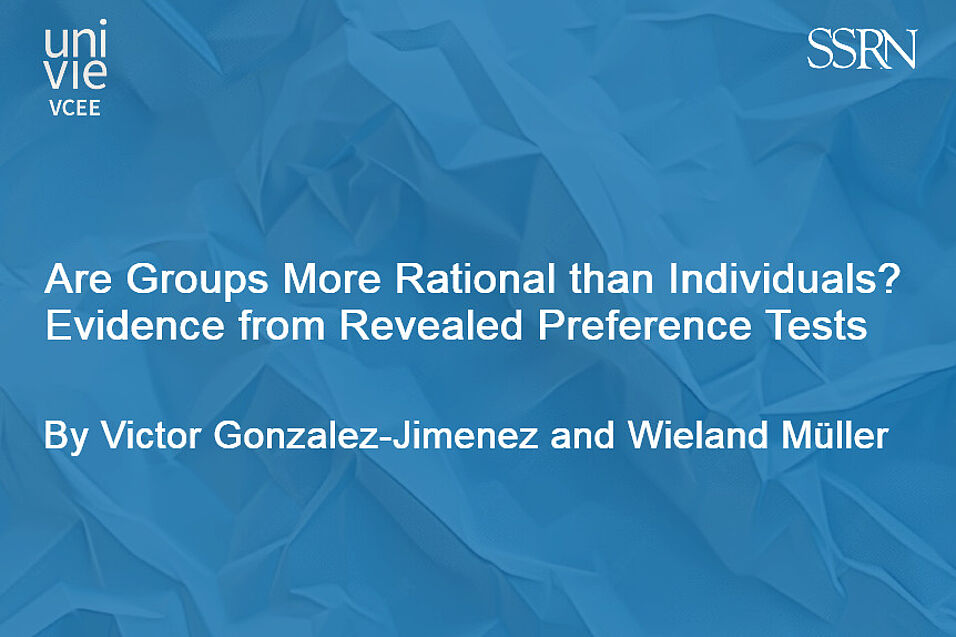"Are Groups More Rational than Individuals? Evidence from Revealed Preference Tests"
Authors: Victor Gonzalez-Jimenez (Tilburg University) and Wieland Müller (University of Vienna)
Abstract:
Economic analysis assumes that decision makers, whether individuals, households, or committees, behave as if they maximize a utility function when making choices under risk. We test this assumption by comparing the consistency of group and individual choices in laboratory experiments. We also examine how individual preferences are aggregated when groups form and how group choices influence individual behavior when groups dissolve. Using nonparametric revealed preference tests and related efficiency measures, we find that groups are more consistent with utility maximization and exhibit stronger normative properties under risk, more often respecting first-order stochastic dominance and adhering to expected utility theory. These improvements arise from a “teacher–pupil” dynamic, in which the more rational group member disproportionately influences decisions. Group deliberation thus acts as a corrective mechanism, aligning behavior more closely with consumer theory.
The paper can be downloaded here.

